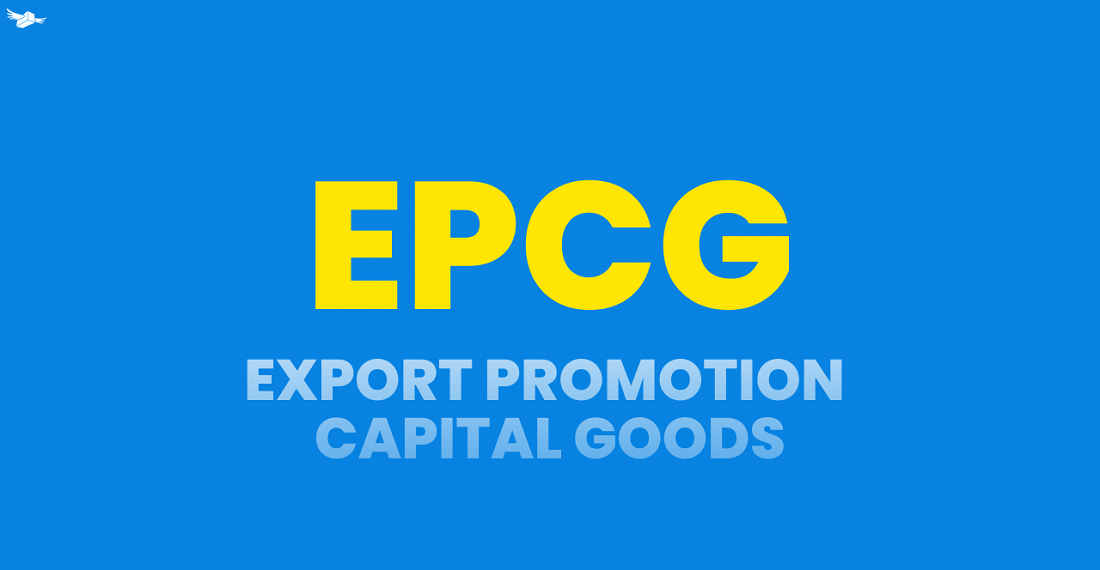
EPCG stands for Exports Promotion Capital Goods. It is a term most commonly used in the import and export business. EPCG Scheme lets you import capital goods with zero customs duties. The EPCG scheme aims to ensure high-quality goods and services can be imported into the country. The EPCG Scheme has another purpose: to increase manufacturing in India and to export to other countries.
The following capital goods may be imported under the EPCG program:
- Computer software systems
- Tools, fixtures, tools, spares, and molds
- Capital goods
- Catalysts and initial charge plus one additional charge
What is the average EPCG Scheme export obligation?
An average export obligation refers to the average export performance of the same or similar products over the previous three licensing years. This Average export obligation is calculated by taking the average of three years prior to its issuance and will be included on the EPCG license.
The Average Export Obligation requires that an exporter be able to keep track of the average turnover of similar goods or services during the last three financial years until the license is issued. The turnover should be maintained until the specific obligation is fulfilled.
The average export obligation’s purpose is to ensure that the average exceeds a specified limit. This obligation requires that the Directorate General of Foreign Trade, (DGFT), keep track of export performance in all preceding years.
EPCG Export Obligation
- The EPCG Scheme’s Export Obligation Period is 6 years.
- The authorization holder can only fulfill the export obligations by exporting goods that are made using said machinery. The export of other products that are not listed on the EPCG License does not satisfy the export obligation.
- Export obligation can be fulfilled by third-party export, direct export, or considered export.
- An EPCG Authorisation holder is required to submit a report on the satisfaction of Export Obligation within 30 April of each year in hardcopy to DGFT RA.
- If the EPCG License details in shipping bills contain details of Advance Authorisations, DFIA, MEIS, or other reward schemes, they can be included in export obligation fulfillment.
Two types of Export obligations are imposed under the EPCG scheme:
Specific Export Obligation (SEO):
- Exporters under Specific export obligation must export goods equal to 6 times the actual duty savings amount within 6 years of the EPCG license issue date.
- In SEO, the Export Obligation must be completed block-wise
- 1st Block – The first four years following the issue date of the license are called 1st blocks. Here, the exporter must fulfill at least half of the Export Obligation.
- 2nd Block – The two most recent years, i.e. The 2nd Block is the last two years, i.e. 5th and 6th from the date of the license’s issue.
If the Authorisation holder is unable to complete the 1st Block, he can pay 2% composition fees on the Duty Saved Value proportionate to the Unfulfilled Export Obligation.
Average Export Obligation:
- AEO should maintain the AEO average turnover for the same or similar products during the preceding three years prior to the license being issued. This will ensure that we meet the Specific Export Obligation.
- This obligation requires that you maintain the export performance achieved in prior financial years.
The EPCG scheme, as we have already mentioned, was created with the goal of increasing exports. Therefore, AEO maintains the average and SEO ensures an increase in exports.
Extension of EPCG Export Obligation
If the Export Obligation is not fulfilled within the 6-year period given to an Authorisation holder, the extension period can be extended.
- To request a DGFT period:
- The Authorisation Holder has the right to request DGFT RA within 90 days of the expiry or termination of the Export Obligation Period. The RA can also grant extensions of up to 180 calendar days for an additional composition fee in the amount of Rs. 5,000/- Extension
- The DGFT RA has the ability to grant two extensions of one year each. In addition, they will need to pay a composition fee equal to 5% in the First Year and 10% in Second Year.
- The minimum composition fee will amount to Rs. 10,000.
- Automatic Export Obligation Extension upon the occurrence or Ban on Export Product
- Para 5.20 FTP2015-20 says that if there’s a ban on an export product within the time period of the license issuance, then the Export Obligation can be extended automatically for the duration of the ban. The authorization holder does not have to keep the average export obligation during the ban period.
Export of goods relating to the following EPCG authorization shall be exempt from the Holder’s average export obligation: Handicrafts & Handlooms. Cottage & Tiny sector. Agriculture, Aquaculture (including Fisheries), Pisciculture. Animal husbandry. Floriculture and Horticulture. Poultry. Viticulture. Sericulture. Carpets. Coir.The Import-export Consulting can assist you in closing/redeeming your EPCG License with DGFT.





